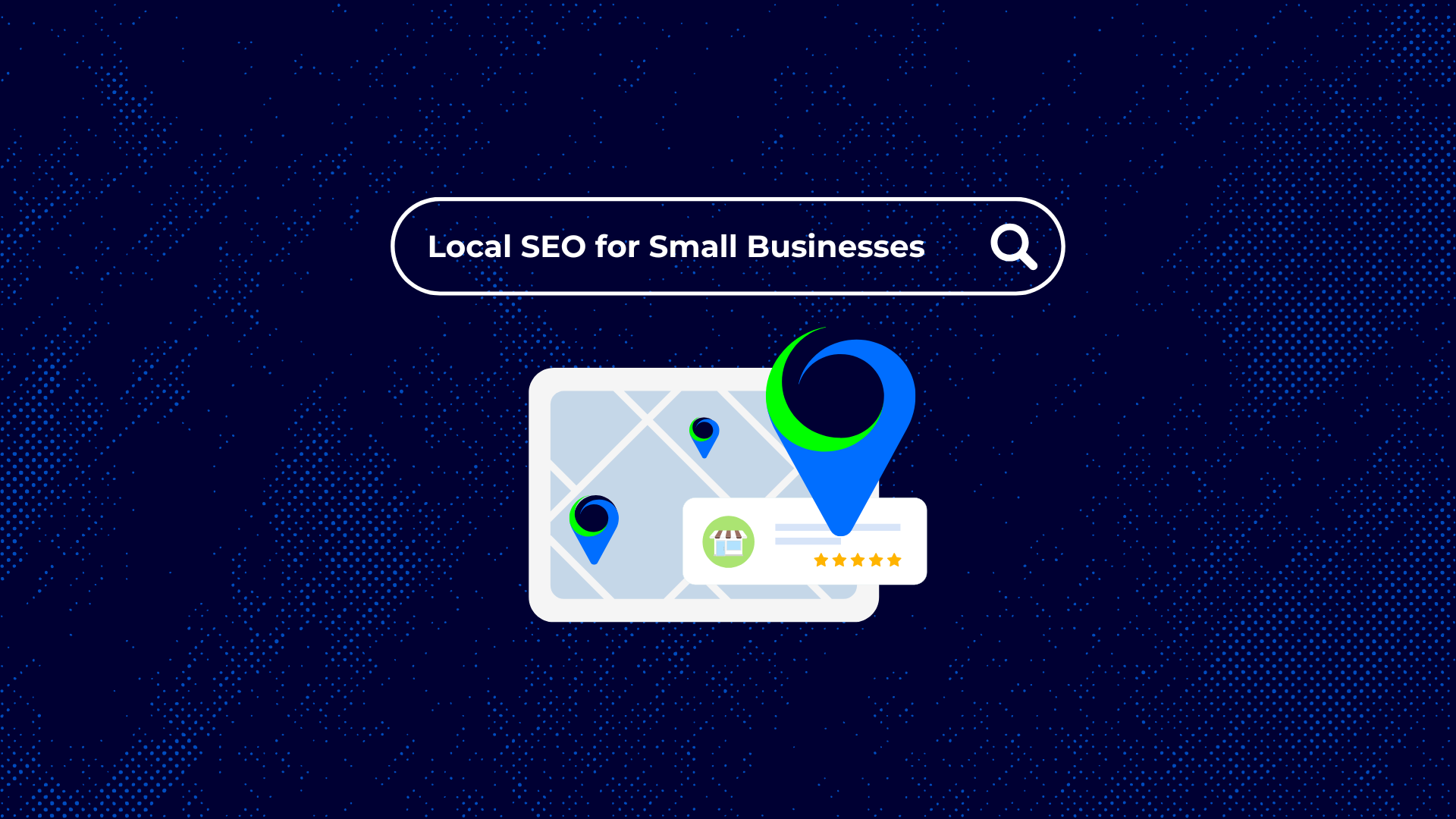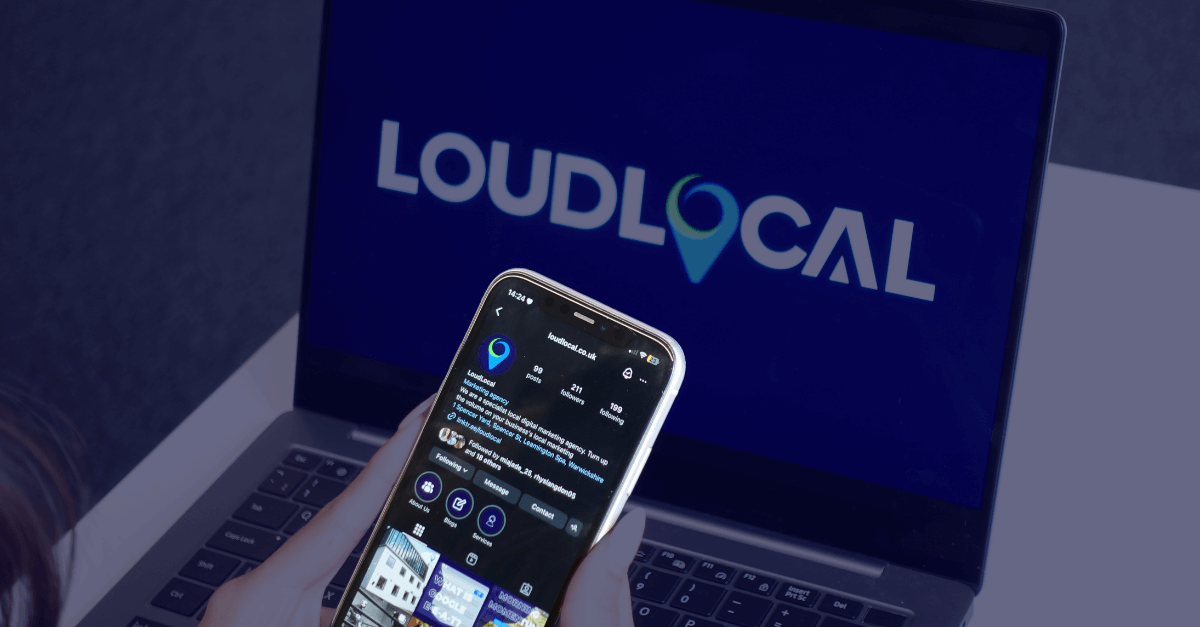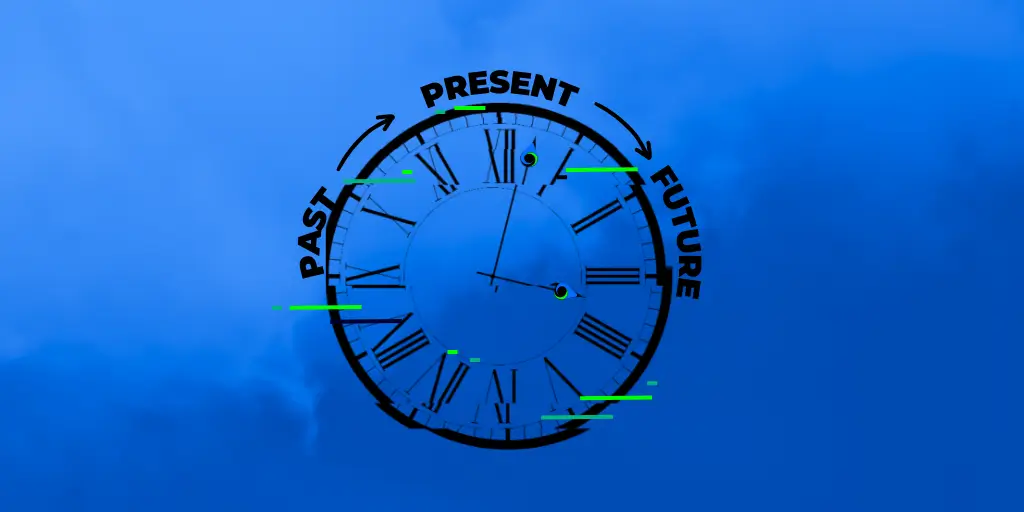The Ultimate Guide to Local SEO for Small Businesses (2025)
Getting found by local customers online isn’t some magic trick, it’s about making sure your business shows up when people nearby are searching for...
Got a question, or need help with something?
A member of the LoudLocal team is on hand to help you.
The Brickyard, Unit 2, Queen's Rd, Kenilworth, Warwickshire, CV8 1JQ
5 Merchant Square, Paddington, London, W2 1AY
While digital marketing and marine biology may seem worlds apart, they actually work hand in hand. Digital marketing in marine biology helps educate the public, raise awareness, and recruit the next generation of marine biologists and volunteers, all aiming to make a positive impact on our oceans. From allowing researchers to share their findings on public platforms to supporting ecotourism efforts that rely on tourism to fund research and conservation, nearly every aspect of marine biology benefits from digital marketing. In this blog, I'll break down how having a solid digital marketing strategy can help marine biologists and a variety of industries.
Digital marketing refers to online campaigns aimed at promoting products, services, and ideas through channels like social media, search engines, and websites. In today’s fast-paced, digital world, having a strong online presence is more important than ever. Whether it’s through SEO, content marketing, or paid advertising, digital marketing allows organisations to connect with their audience on a global scale.
For industries like marine biology, where education and awareness are crucial, digital marketing can amplify their efforts, bringing research, conservation, and ecotourism to the forefront of public consciousness.
Marine biology is the scientific study of organisms in the ocean. With oceans covering more than 70% of the Earth's surface, the discipline plays a critical role in understanding and preserving some of the planet’s most diverse ecosystems. Traditionally, marine biologists focus on research, conservation, and the preservation of marine life. However, in recent years, digital marketing has become a powerful tool for boosting the visibility and impact of their work, with many marine biologists writing blogs, running social media accounts or creating podcasts.
One of the greatest strengths of digital marketing is its ability to reach a large, targeted audience. Social media platforms like Instagram, TikTok, and YouTube are powerful tools for marine biologists to share their research, document the impact various global challenges such as climate change, and educate the public on the importance of ocean conservation. Educational campaigns, infographics, and videos can spread awareness to a completely new audience, far beyond those reached with traditional academic journals. Social media allows information to reach an audience wider and more diverse than those actively seeking to educate themselves but instead who find themselves captivated by the stories being told.
An example of this is the current global crisis of plastic pollution. Up to 14 million tonnes of plastic enter our oceans annually, causing devastating effects on marine wildlife, disrupting food chains, and leading to severe injuries. Raising awareness about this issue is crucial to promote positive change and encourage more sustainable lifestyle choices. People are far more likely to take action when they care strongly about an issue - and to care, they must first be informed. This is where digital marketing plays a vital role, enabling widespread education and engagement through powerful campaigns that drive meaningful impact.
%20(2).png?width=600&height=444&name=Untitled%20(1080%20x%20800%20px)%20(2).png)
Many marine biology research projects rely on public funding, donations, and grants. Digital marketing makes it easier than ever to launch crowdfunding campaigns on platforms like GoFundMe, Kickstarter, or dedicated conservation sites. With effective marketing strategies, these campaigns can reach a global audience, helping raise the necessary funds to support marine research, wildlife conservation, and rehabilitation projects.
An example of this is the Marine Conservation Society’s (MCS) ‘Great British Beach Clean’ campaign. It is now an annual citizen science event, encouraging people to get outside and help clean up beaches across the UK. Not only does this have the obvious benefit of removing plastics and other pieces of litter from the beach, it also collects vital data used to drive conservation work and influence policy change. The MCS help promote this campaign every year across their website and social media, these digital marketing campaigns have helped recruit volunteers from right across the UK to take part in this event and make a positive difference to our beaches.
Ecotourism plays a significant role in marine biology, helping to fund research and conservation efforts. Digital marketing allows ecotourism companies to promote eco-friendly tours, diving experiences, and marine sanctuaries to tourists interested in sustainable travel. Through targeted ads, blog posts, and influencer partnerships, ecotourism brands can reach people who are passionate about marine conservation and attract visitors who want to make a positive impact. Companies like 'Blue Marine Foundation' have effectively used digital campaigns to draw attention to endangered marine sanctuaries, increasing tourism and funding for these conservation areas.
Ecotourism allows people to connect with nature by exposing them to parts of the natural world they might never otherwise experience. These immersive encounters form deeper appreciation for marine wildlife, increasing the likelihood of individuals supporting marine conservation initiatives and contributing to charities working to conserve our oceans.
%20(1).png?width=600&height=444&name=Untitled%20(1080%20x%20800%20px)%20(1).png)
Recruiting volunteers and the next generation of marine biologists is critical for the future of ocean conservation. Digital marketing provides an avenue to share volunteer opportunities, internships, and job openings on platforms like LinkedIn, Indeed, and specialised environmental job boards. Social media campaigns can also inspire students and professionals to get involved in marine biology and volunteer for projects such as ocean-cleaning initiatives, beach restoration projects, and coral reef conservation.
Traditionally, marine biology research was confined to academic journals, making it accessible only to scientists and scholars. Digital marketing helps make this information more widely available to the wider public, in various formats. Marine biologists can use blog posts, videos, and podcasts to explain their findings in a way that’s easy to understand. By creating SEO-optimised content, they can reach a wider audience, ensuring their message spreads far and wide.
%20(3)%20(1).png?width=600&height=444&name=Untitled%20(1080%20x%20800%20px)%20(3)%20(1).png)
Search engine optimisation (SEO) plays a critical role in ensuring that marine biology content reaches the right audience. By optimising blog posts, research articles, and web pages with relevant keywords like "marine conservation," "ocean health," and "sustainable ecotourism," marine biologists can ensure that their content appears in search engine results when people look for information about these topics.
Additionally, SEO helps drive organic traffic to websites, which is essential for non-profits, research institutions, and conservation organisations that may have limited marketing budgets.
Digital marketing has become an indispensable tool for marine biologists and conservationists. It not only helps raise awareness and educate the public but also plays a pivotal role in fundraising, supporting ecotourism, and recruiting the next generation of ocean stewards. By harnessing the power of digital marketing, marine biologists can extend the reach and impact of their work, creating a more informed and engaged public that is ready to protect our oceans for future generations.
Digital marketing has proven to be an invaluable tool for amplifying the efforts of marine biologists and conservationists. By leveraging online platforms, they can raise awareness, educate the public, secure funding, and inspire action on a global scale. Whether it’s sharing research on social media, promoting sustainable ecotourism, or highlighting critical issues like plastic pollution, digital marketing bridges the gap between science and public engagement.
As we face growing challenges like climate change and biodiversity loss, the importance of using innovative approaches for communication has never been more important. By combining the power of science with the reach of digital marketing, we can create a more informed society and inspire the next generation to all work together to protect our ocean.
If you are interested in how digital marketing could boost you're business, get in touch with our team to see how we can help.

Getting found by local customers online isn’t some magic trick, it’s about making sure your business shows up when people nearby are searching for...

Running a small business is a full-time job in itself, and finding time for social media can feel like an extra task on the list. But here’s the...

Running a trades business takes a lot of time and energy. You’re busy on site, chasing quotes, and keeping customers happy. But while you’re focused...

Guide Contents What is Digital Marketing and why is it important?

In 2009, Google conducted an experiment in which forty-one unique shades of blue were tested on users browsing their search engine. The subject of...

A good digital marketing agency can make a massive difference to your business - bringing in more enquiries, boosting your online presence, and...